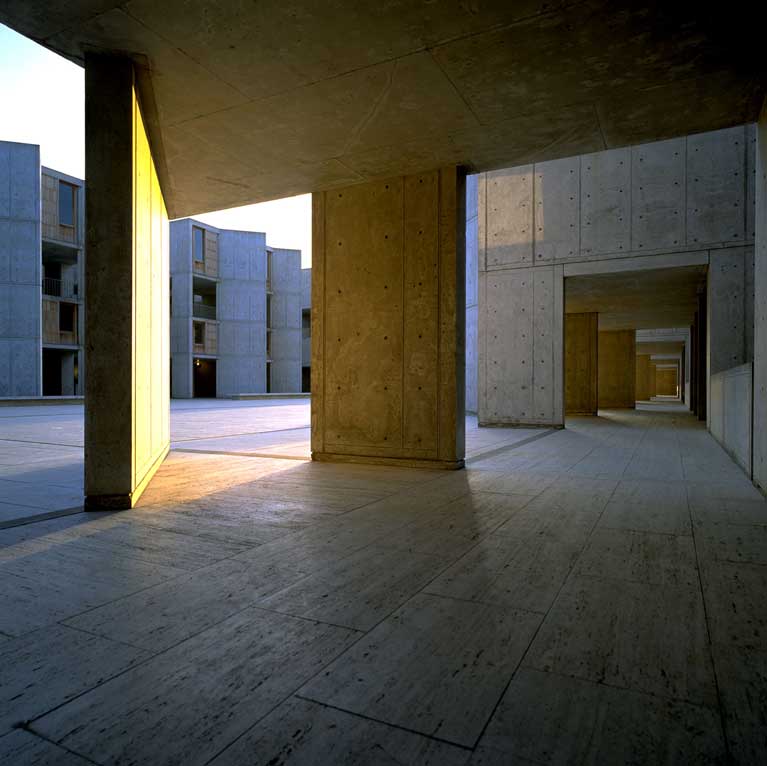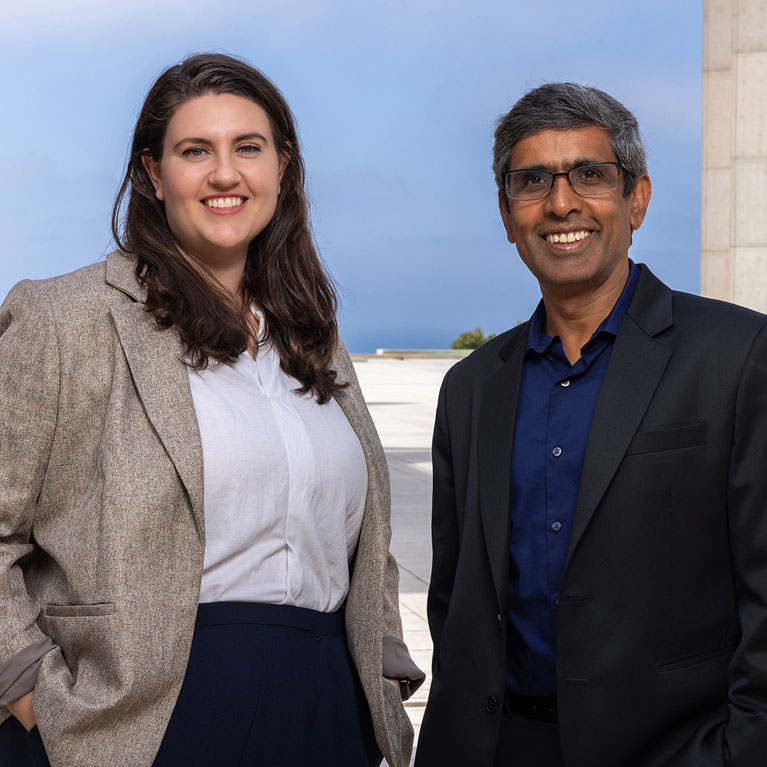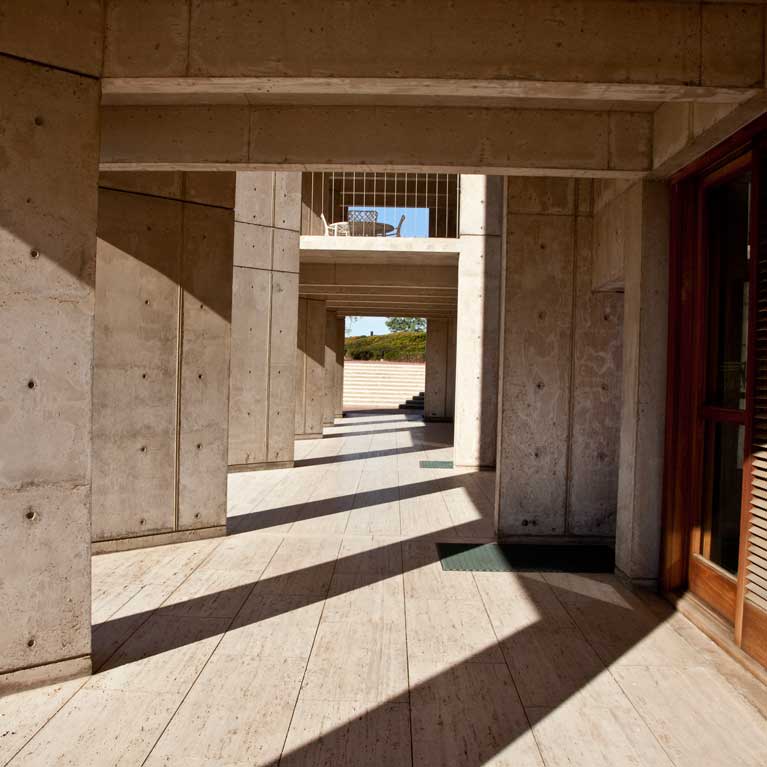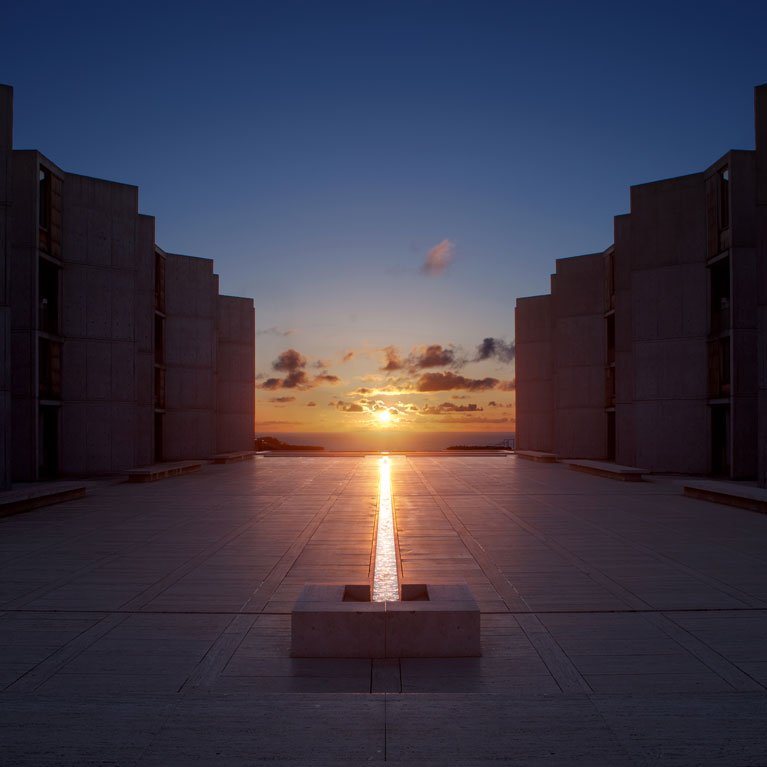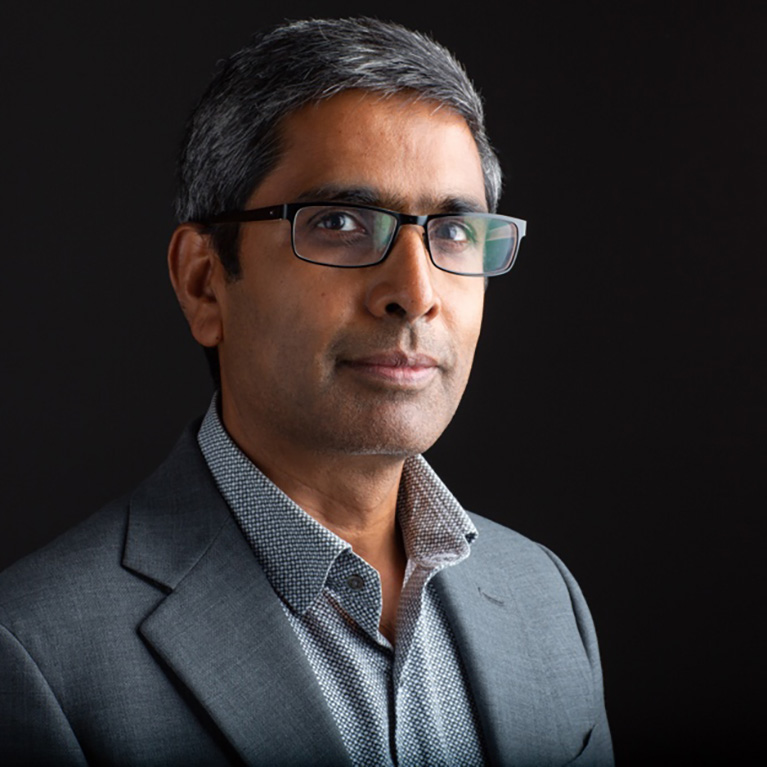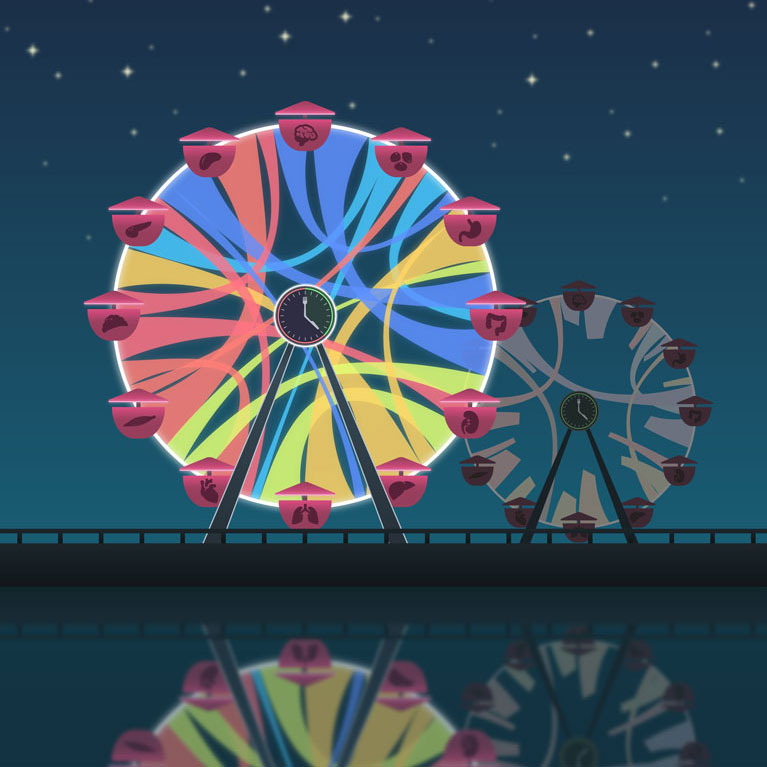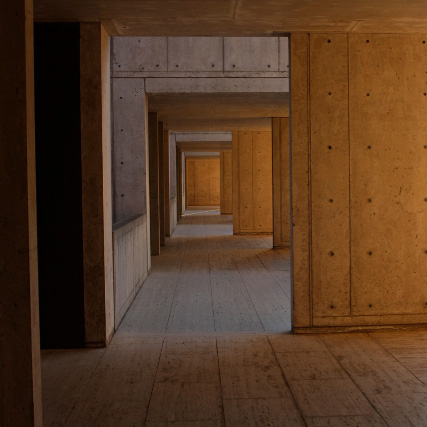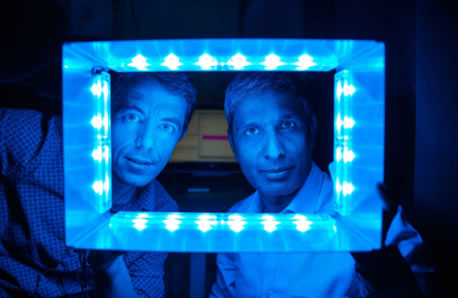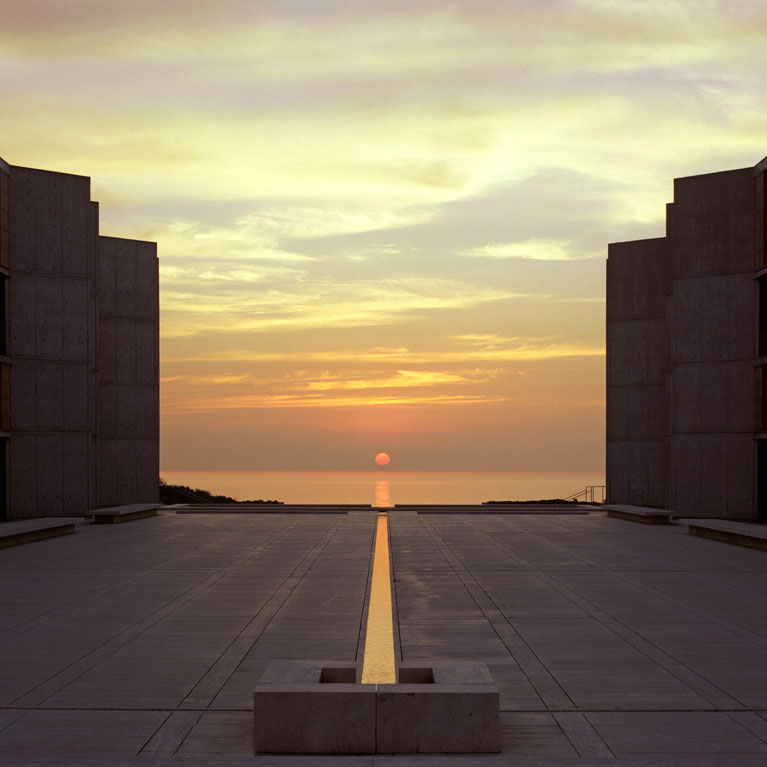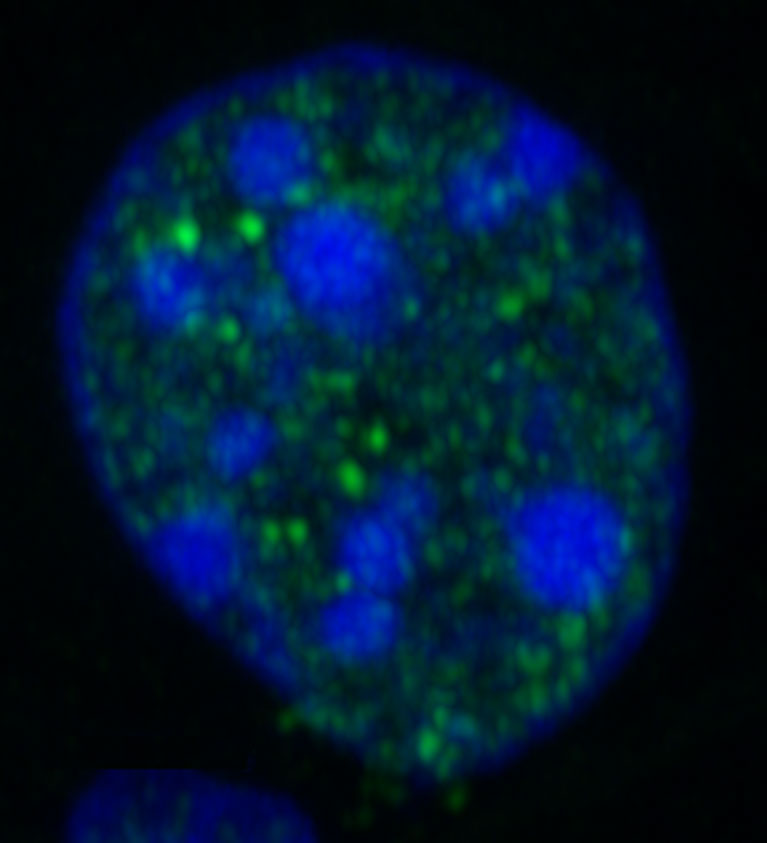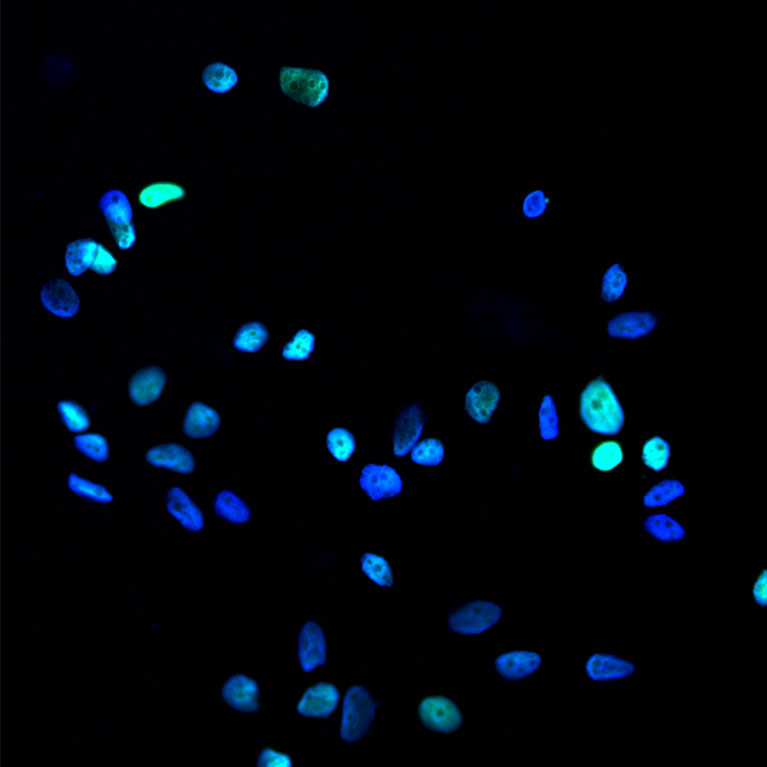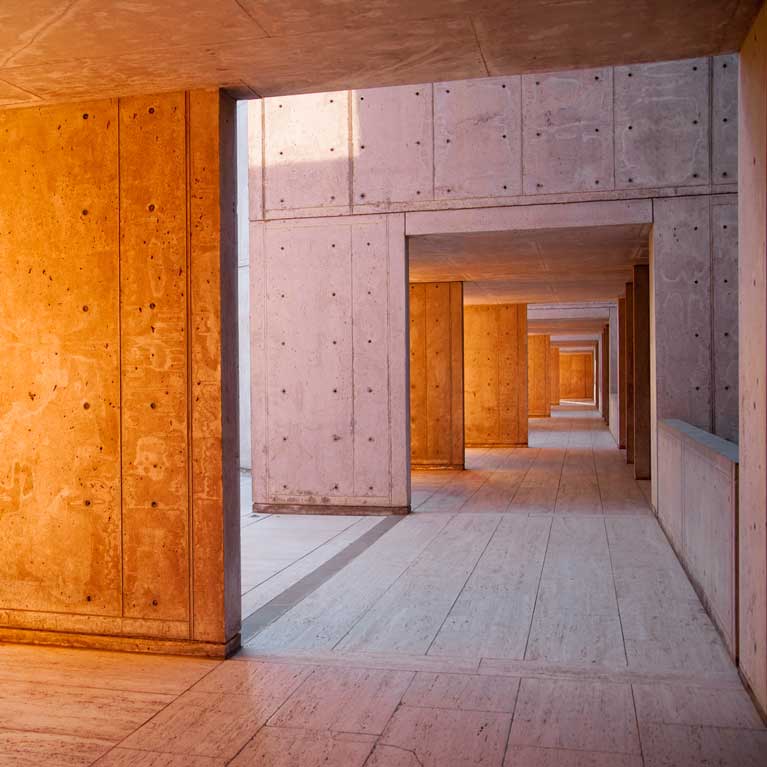Press
Eight Salk scientists named among the most Highly Cited Researchers in the world
LA JOLLA—Salk faculty members Joseph Ecker, PhD, Ronald Evans, PhD, Rusty Gage, PhD, Christian Metallo, PhD, Satchidananda Panda, PhD, Reuben Shaw, PhD, and Kay Tye, PhD, as well as research assistant Joseph Nery have all been named in this year’s Highly Cited Researchers list by Clarivate. The 2025 list includes 6,868 researchers from 60 countries who have demonstrated “significant and broad influence in their fields of research.”
Salk Institute scientists named semifinalists in XPRIZE Healthspan competition
LA JOLLA—Salk Institute Professor Satchidananda Panda has been named a semifinalist in the XPRIZE Healthspan competition. Panda’s team is known for its expertise in circadian rhythms, the body’s internal timetable that determines the timing of our behaviors, such as sleep and wakefulness, and almost every bodily function.
Seven Salk scientists named among most highly cited researchers in the world
LA JOLLA—Salk Professors Joseph Ecker, Ronald Evans, Rusty Gage, Satchidananda Panda, Reuben Shaw, and Kay Tye, as well as research assistant Joseph Nery, have all been named to the Highly Cited Researchers list by Clarivate. The 2024 list includes 6,636 researchers from 59 countries who have demonstrated “significant and broad influence in their fields of research,” as reflected by their publication of multiple papers over the past decade that rank in the top 1% by citations for their fields.
One in three Americans has a dysfunctional metabolism, but intermittent fasting could help
LA JOLLA—More than one-third of adults in the United States have metabolic syndrome, a cluster of conditions that significantly raise a person’s risk of heart disease, stroke, and type 2 diabetes. These conditions include high blood pressure, elevated blood sugar, excess abdominal fat, and abnormal cholesterol levels.
Fuel level low! Energy deficits harm athletes’ health, new research tool reveals how
LA JOLLA—In 2014, the International Olympic Committee named a syndrome affecting many of its athletes: relative energy deficiency in sport, or REDs. It’s now estimated that more than 40% of professional athletes have REDs, and the rate could be even higher in recreational athletes and exercisers.
Salk Professor Satchin Panda named 2023 AAAS Fellow
LA JOLLA—Salk Institute Professor Satchidananda Panda has been named a 2023 Fellow of the American Association for the Advancement of Science (AAAS), the world’s largest general scientific society and publisher of the journal Science. Panda is among 502 new AAAS Fellows spanning 24 scientific disciplines who were nominated by their peers for their distinguished efforts to advance science. The election recognizes his contributions to the field of chronobiology, particularly for applications to obesity and human health.
Seven Salk scientists named among best and most highly cited researchers in the world
LA JOLLA—Salk Professors Joseph Ecker, Ronald Evans, Satchidananda Panda, Rusty Gage, and Kay Tye, as well as Assistant Professor Jesse Dixon, have been named to the Highly Cited Researchers list by Clarivate. The 2023 list includes 6,849 researchers from 67 countries, all of whom demonstrate “significant and broad influence reflected in their publication of multiple highly cited papers over the last decade.” This is the ninth consecutive year that Ecker and Gage have made the list. Joseph Nery, a research assistant II in the Ecker lab, was also included on the list.
Time-restricted eating reshapes gene expression throughout the body
LA JOLLA—Numerous studies have shown health benefits of time-restricted eating including increase in life span in laboratory studies, making practices like intermittent fasting a hot topic in the wellness industry. However, exactly how it affects the body on the molecular level, and how those changes interact across multiple organ systems, has not been well understood. Now, Salk scientists show in mice how time-restricted eating influences gene expression across more than 22 regions of the body and brain. Gene expression is the process through which genes are activated and respond to their environment by creating proteins.
Ten Salk professors named among best and most highly cited researchers in the world
LA JOLLA—Salk Professors Joseph Ecker, Ronald Evans, Rusty Gage, Christian Metallo, Satchidananda Panda, Reuben Shaw, and Kay Tye, along with Assistant Professor Jesse Dixon, have been named to the Highly Cited Researchers list by Clarivate. This year’s list includes 6,938 researchers from 69 countries and identifies researchers who demonstrate “significant influence in their chosen field or fields through the publication of multiple highly cited papers.” Ecker and Gage have been named to this list every year since 2014, when the regular annual rankings began. Joseph Nery, a research assistant II in the Ecker lab, was also included on the list.
Time-restricted eating improves health of firefighters
LA JOLLA—Firefighters are the heroes of our society, protecting us around the clock. But those 24-hour shifts are hard on the body and increase the risk of cardiometabolic diseases, such as heart disease and diabetes, as well as cancer. In collaboration with the San Diego Fire-Rescue Department, scientists from the Salk Institute and UC San Diego Health conducted a clinical trial and found that time-restricted eating improved measures of health and wellbeing in firefighters. The lifestyle intervention only required the firefighters to eat during a 10-hour window and did not involve skipping meals.
Six Salk professors named among most highly cited researchers in the world
LA JOLLA—Salk Professors Joanne Chory, Joseph Ecker, Rusty Gage, Satchidananda Panda, Reuben Shaw and Kay Tye have been named to the Highly Cited Researchers list by Clarivate. The list identifies researchers who demonstrate “significant influence in their chosen field or fields through the publication of multiple highly cited papers.” Chory, Ecker and Gage have been named to this list every year since 2014, when the regular annual rankings began. This is Tye’s fifth, Shaw’s third and Panda’s first time receiving the designation. Additionally, Ecker appeared in two separate categories: “plant and animal science” and “molecular biology and genetics” and is one of 3.4 percent of researchers selected in two fields. Joseph Nery, a research assistant II in the Ecker lab, was also included on the list.
Benefits of time-restricted eating depend on age and sex
LA JOLLA—Time-restricted eating (TRE), a dietary regimen that restricts eating to specific hours, has garnered increased attention in weight-loss circles. A new study by Salk scientists further shows that TRE confers multiple health benefits besides weight loss. The study also shows that these benefits may depend on sex and age.
Salk Institute among cross-collaborative teams gifted $220 million by Wu Tsai Human Performance Alliance
LA JOLLA—A Salk Institute team led by Professor Satchin Panda, along with teams from five other organizations, have been awarded a total of $220 million by the Joe and Clara Tsai Foundation’s Human Performance Alliance, whose philanthropic investment aims to transform human health on a global scale through the discovery and translation of the biological principles underlying human performance.
Salk Professors Satchin Panda and Tatyana Sharpee honored with endowed chairs
LA JOLLA—Professors Satchin Panda and Tatyana Sharpee have both been recognized for their contributions and dedication to advancing science through research by being named to endowed chairs at the Salk Institute.
Salk researchers accelerate, expand COVID-19 research
LA JOLLA—As the COVID-19 pandemic continues across the globe, the Salk Institute joins in efforts to understand the fundamental science behind the novel coronavirus to pave the way to treatments and cures. COVID-19 exploits a vulnerability in the immune system’s armor: because the SARS-CoV-2 virus—the novel coronavirus that causes COVID-19—appeared in humans recently, our immune systems have no experience with the virus—and sometimes have difficulty fighting it.
Three types of cells help the brain tell day from night
LA JOLLA—Bright light at night interrupts the body’s normal day-night cycles, called circadian rhythms, and can trigger insomnia. In fact, circadian rhythms play a major role in health. Disrupted day-night cycles have even been linked to increased incidence of diseases like cancer, heart disease, obesity, depressive disorders and type 2 diabetes in people who work night shifts. Therefore, understanding how human eyes sense light could lead to “smart” lights that can prevent depression, foster sleep at night, and maintain healthy circadian rhythms.
Clinical study finds eating within a 10-hour window may help stave off diabetes, heart disease
LA JOLLA—Metabolic syndrome affects nearly 30 percent of the U.S. population, and increases the risk for type 2 diabetes, heart disease and stroke. But lifestyle interventions such as adopting a healthy diet and increasing physical exercise are difficult to maintain and, even when combined with medication, are often insufficient to fully manage the disease.
Novel technique helps explain why bright light keeps us awake
LA JOLLA—In recent decades, scientists have learned a great deal about how different neurons connect and send signals to each other. But it’s been difficult to trace the activity of individual nerve fibers known as axons, some of which can extend from the tip of the toe to the head. Understanding these connections is important for figuring out how the brain receives and responds to signals from other parts of the body.
Why screen time can disrupt sleep
LA JOLLA—For most, the time spent staring at screens—on computers, phones, iPads—constitutes many hours and can often disrupt sleep. Now, Salk Institute researchers have pinpointed how certain cells in the eye process ambient light and reset our internal clocks, the daily cycles of physiological processes known as the circadian rhythm. When these cells are exposed to artificial light late into the night, our internal clocks can get confused, resulting in a host of health issues.
Eating in 10-hour window can override disease-causing genetic defects, nurture health
LA JOLLA—Scientists at the Salk Institute found that mice lacking the biological clocks thought to be necessary for a healthy metabolism could still be protected against obesity and metabolic diseases by having their daily access to food restricted to a 10-hour window.
Depleting microbiome with antibiotics can affect glucose metabolism
LA JOLLA—A new study from the Salk Institute has found that mice that have their microbiomes depleted with antibiotics have decreased levels of glucose in their blood and better insulin sensitivity. The research has implications for understanding the role of the microbiome in diabetes. It also could lead to better insight into the side effects seen in people who are being treated with high levels of antibiotics. The study appeared in the journal Nature Communications on July 20, 2018.
Salk and UC San Diego scientists receive $1.5 million to study firefighter health
LA JOLLA—We count on firefighters to protect us in life-threatening situations. So it’s in everyone’s best interest for them to be healthy and fit. Salk Institute and University of California San Diego School of Medicine researchers have been awarded a $1.5 million grant by the Department of Homeland Security for a three-year study to see whether restricting food intake to a 10-hour window can improve firefighters’ well-being.
Salk researchers discover how liver responds so quickly to food
LA JOLLA—Minutes after you eat a meal, as nutrients rush into your bloodstream, your body makes massive shifts in how it breaks down and stores fats and sugars. Within half an hour, your liver has made a complete switch, going from burning fat for energy to storing as much glucose, or sugar, as possible. But the speed at which this happens has flummoxed scientists—it’s too short a time span for the liver’s cells to activate genes and produce the RNA blueprints needed to assemble new proteins to guide metabolism.
Timing is everything, to our genes
LA JOLLA—To everything there is a season. This saying applies to many human endeavors, but new research shows it’s even true on the molecular level. A Salk Institute study published in the journal Science on February 8, 2018, found that the activity of nearly 80 percent of genes follows a day/night rhythm in many tissue types and brain regions.
Salk scientists curb growth of cancer cells by blocking access to key nutrients
LA JOLLA—Salk researchers have discovered how to curb the growth of cancer cells by blocking the cells’ access to certain nutrients. The approach, detailed in a new paper published today in Nature, took advantage of knowledge on how healthy cells use a 24-hour cycle to regulate the production of nutrients and was tested on glioblastoma brain tumors in mice.
Salk promotes four leading scientists in the fields of neuroscience, circadian rhythms and immunology
LA JOLLA–Four Salk Institute faculty members have been promoted after the latest round of faculty reviews determined they are scientific leaders who have made original, innovative and notable contributions to biological research.
Mobile app records our erratic eating habits
LA JOLLA–Breakfast, lunch and dinner? For too many of us, the three meals of the day go more like: morning meeting pastry, mid-afternoon energy drink and midnight pizza. In Cell Metabolism on September 24, Salk Institute scientists present daily food and beverage intake data collected from over 150 participants of a mobile research app over three weeks. They show that a majority of people eat for 15 hours or longer, with less than a quarter of the day’s calories being consumed before noon and over a third consumed after 6 p.m.
Another case against the midnight snack
LA JOLLA–These days, with the abundance of artificial light, TV, tablets and smartphones, adults and children alike are burning the midnight oil. What they are not burning is calories: with later bedtimes comes the tendency to eat.
In a healthy gut, microbes wax and wane throughout the day
LA JOLLA–Taking a single snapshot of all the bacteria that live in a mouse’s–or person’s–stomach and intestines can capture the health of the organism’s digestive system and even their risk of developing immune diseases and cancers. But it might take more than one snapshot to get a full picture, Salk researchers have discovered.
Single gene controls jet lag
LA JOLLA–Scientists at the Salk Institute for Biological Studies have identified a gene that regulates sleep and wake rhythms.
Genes discovered linking circadian clock with eating schedule
LA JOLLA—For most people, the urge to eat a meal or snack comes at a few, predictable times during the waking part of the day. But for those with a rare syndrome, hunger comes at unwanted hours, interrupts sleep and causes overeating.
Drug blocks light sensors in eye that may trigger migraine attacks
LA JOLLA, CA—For many migraine sufferers, bright lights are a surefire way to exacerbate their headaches. And for some night-shift workers, just a stroll through a brightly lit parking lot during the morning commute home can be enough to throw off their body’s daily rhythms and make daytime sleep nearly impossible. But a new molecule that selectively blocks specialized light-sensitive receptors in the eyes could help both these groups of people, without affecting normal vision according to a study published August 25, 2013 in Nature Chemical Biology.
More than 3,000 epigenetic switches control daily liver cycles
LA JOLLA, CA—When it’s dark, and we start to fall asleep, most of us think we’re tired because our bodies need rest. Yet circadian rhythms affect our bodies not just on a global scale, but at the level of individual organs, and even genes.
Salk scientists discover molecular link between circadian clock disturbances and inflammatory diseases
LA JOLLA, CA—Scientists have known for some time that throwing off the body’s circadian rhythm can negatively affect body chemistry. In fact, workers whose sleep-wake cycles are disrupted by night shifts are more susceptible to chronic inflammatory diseases such as diabetes, obesity and cancer.
Salk study may offer drug-free intervention to prevent obesity and diabetes
LA JOLLA, CA—It turns out that when we eat may be as important as what we eat. Scientists at the Salk Institute for Biological Studies have found that regular eating times and extending the daily fasting period may override the adverse health effects of a high-fat diet and prevent obesity, diabetes and liver disease in mice.
Salk scientists redraw the blueprint of the body’s biological clock
LA JOLLA, CA—The discovery of a major gear in the biological clock that tells the body when to sleep and metabolize food may lead to new drugs to treat sleep problems and metabolic disorders, including diabetes.
“Alarm clock” gene explains wake-up function of biological clock
LA JOLLA, CA‚Ever wondered why you wake up in the morning—even when the alarm clock isn’t making jarring noises? Wonder no more. Researchers at the Salk Institute for Biological Studies have identified a new component of the biological clock, a gene responsible for starting the clock from its restful state every morning.
Salk Institute promotes latest generation of extraordinary scientists
LA JOLLA, CA—After undergoing an extensive review process by Salk senior faculty, Non-Resident Fellows, and scientific leaders in their respective fields, Leanne Jones and Satchidananda Panda have been promoted to Associate Professor, and E.J. Chichilnisky, Andrew Dillin, Martin Hetzer, and Jan Karlseder to full Professor, the Salk Institute for Biological Studies announced today.
Melanopsin looks on the bright side of life
LA JOLLA, CA—Better known as the light sensor that sets the body’s biological clock, melanopsin also plays an important role in vision: Via its messengers-so-called melanopsin-expressing retinal ganglion cells, or mRGCs-it forwards information about the brightness of incoming light directly to conventional visual centers in the brain, reports an international collaboration of scientists in this week’s issue of PLoS Biology.
Feeding the clock
LA JOLLA, CA—When you eat may be just as vital to your health as what you eat, found researchers at the Salk Institute for Biological Studies. Their experiments in mice revealed that the daily waxing and waning of thousands of genes in the liver—the body’s metabolic clearinghouse—is mostly controlled by food intake and not by the body’s circadian clock as conventional wisdom had it.
Perfect vision but blind to light
La Jolla, CA – Mammals have two types of light-sensitive detectors in the retina. Known as rod and cone cells, they are both necessary to picture their environment. However, researchers at the Salk Institute for Biological Studies have found that eliminating a third sensor – cells expressing a photopigment called melanopsin that measures the intensity of incoming light – makes the circadian clock blind to light, yet leaves normal vision intact.
Salk Institute researcher named Pew Scholar
La Jolla, CA – Satchidananda Panda, Ph.D., an assistant professor in the Regulatory Biology Laboratory at the Salk Institute for Biological Studies, has been named a Pew Scholar in the Biomedical Sciences. He is one of only 15 researchers in the country to receive the honor this year. The distinction comes with a $240,000 award provided over four years to support his research on the molecular basis of circadian timekeeping mechanisms in mammals.
Human Biological Clock Sensor Uses Fly Eye ‘Technology’
La Jolla, CA – Scientists working for the Genomics Institute of the Novartis Research Foundation (GNF) and the Salk Institute for Biological Studies have discovered the chemical basis of our sixth sense – the mysterious switch that resets our biological clocks as we cross time zones. The finding brings closer to reality medications to treat so-called circadian disorders such as severe jet lag and seasonal depression, as well as improve the lives of shift workers.
